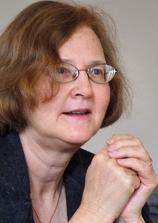Hobart-born scientist, Dr Elizabeth Blackburn is one of three scientists to win the Nobel Prize in Physiology or Medicine for 2009. Professor Blackburn gained her BSc from the University of Melbourne and is now the Morris Herztein Professor of Biology and Physiology in the Department of Biochemistry and Biophysics at the University of California, San Francisco.

Professor Blackburn and her colleagues, Carol Greider and Jack Szostak share the award for their work discovering how the body protects the chromosomes housing vital genetic code.
As the BBC reports, “their work revealed how the chromosomes can be copied and has helped further our understanding on human ageing, cancer and stem cells”.
Full details are available on the Nobel website.
The Australian Science Media Centre wrapped up reaction on the local connection to the Nobel win.
Professor Bob Williamson, University of Melbourne, and Secretary for Science Policy of the Australian Academy of Science
“What an excellent choice! Elizabeth Blackburn is an exceptionally talented Australian cell biologist who has made important contributions to our understanding of how cells in each new generation renew their potential to grow, develop and live for a normal lifespan. Her work on telomere regeneration is not only relevant to normal embryonic development, but also helps in our understanding of why cancer cells are able to divide without normal control. In the long run, her research could give rise to new approaches to treatment for cancer and other diseases. All of us at the Australian Academy of Science are proud she is one of our Fellows.”
Associate Professor Tracy Bryan and Dr Scott Cohen, Children’s Medical Research Institute, Sydney
“Elizabeth Blackburn and Carol Greider showed amazing insight in predicting the existence of this enzyme and then setting out to find it. Their work, along with that of Jack Szostak, is also a beautiful illustration of the potential value of basic research in model organisms”.
Professor Roger Reddel, Children’s Medical Research Institute, Sydney
“The Nobel Prize to Professor Elizabeth Blackburn and her colleagues is for discoveries about telomeres (which are the ends of the chromosomes into which all of our DNA is bundled), including discovery of the telomerase enzyme. It is now known that telomerase is an enzyme that 85% of all cancers depend on for their continuing growth. This discovery may make it possible to treat most cancers by developing anticancer drugs that block the activity of telomerase.
“The telomerase story is an outstanding illustration of the value of basic research. The work on telomeres and telomerase which are recognised by the 2009 Nobel Prize was done to solve a fundamental question about biological processes without any known relevance to cancer or any other human disease. The research was immediately recognised by the scientific community as outstanding. It was several years before other researchers made a connection between telomerase and cancer. The research also has implications for ageing, and for a number of inherited diseases.”